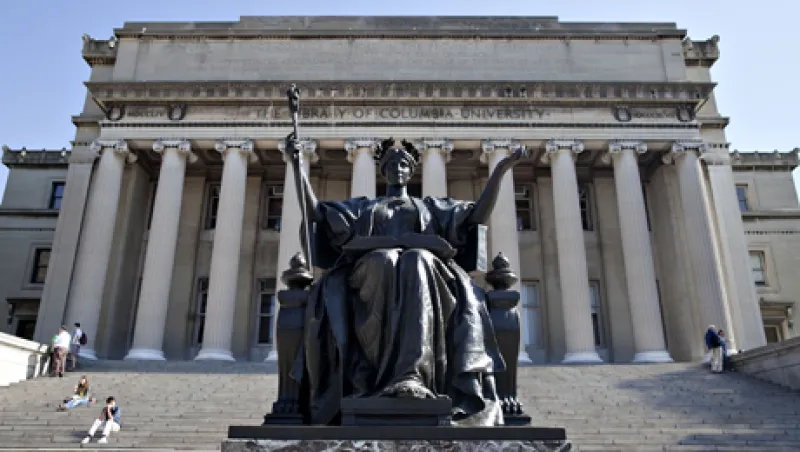It seems competition among Ivy League schools can be just as fierce off the playing field.
Columbia University’s endowment posted a 23.6 percent gain during the fiscal year ending June 30, 2011, an annual return that barely edged out its Ivy peers.
The university’s endowment stood at $7.8 billion at the end of the fiscal year. Columbia’s Investment Management Co., the entity that manages the portfolio, said that the endowment’s long-term returns have been consistently higher than a quarterly rebalanced portfolio of 70 percent equities and 30 percent fixed income as represented by the S&P 500 and Barclay’s Aggregate Index, respectively.
Columbia’s endowment generated an annualized five-year return of 8.8 percent compared to an S&P 500—Barclays 70/30 benchmark return of 4.5 percent. The president of Columbia University, Lee Bollinger, said that prudent investing on the part of the school’s endowment managers helped the endowment post the 23.6 percent gain.
Although the capital markets continue to be rocked by volatility and economic uncertainty across the globe, the money managers of the big Ivy League endowments fared relatively well in 2011. The endowments of Yale and Princeton universities both generated 22 percent gains during the past year, bringing the value of their portfolios to $19.4 billion and $17.1 billion, respectively. Harvard University’s endowment rose 21.4 percent to $32 billion during 2011.
The president of the Harvard Management Co., Jane Mendillo, said that a constant rebalancing of the investment portfolio has paid off. For instance, the “absolute return” portfolio, Harvard’s collection of external hedge fund managers, returned 11.6 percent for the 2011 fiscal year, beating its industry benchmark by 200 basis points. “We have restructured our absolute return portfolio significantly over the last few years and are now happier with the mix of managers and strategies it contains: a variety of approaches to generating value ranging from purely opportunistic to long/short to unusual investments such as royalty streams,” Mendillo said.
When public equity markets do not do as well as they did this past fiscal year, the Harvard Management Co. expects the external hedge fund segment of its portfolio to produce stable risk-adjusted returns over the economic cycle, according to Mendillo.






